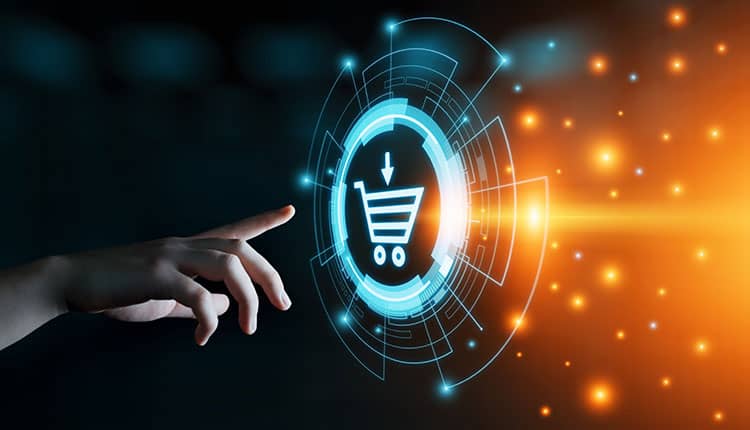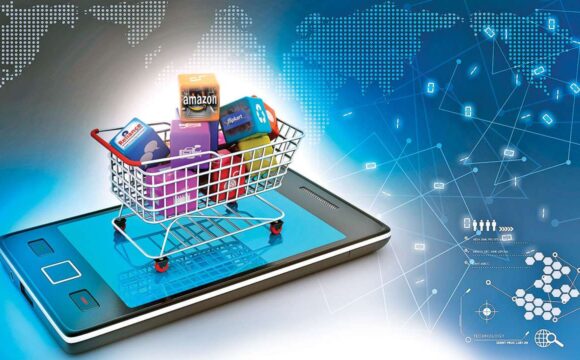Ecommerce has evolved from being a niche experiment of the late 1990s into a global phenomenon that shapes how people shop, work, and interact with brands. What once meant simply purchasing a book or an electronic gadget online has now become an intricate ecosystem encompassing personalized experiences, innovative technologies, and global supply chains. Yet as the industry matures, the focus is shifting from mere convenience to deeper values—trust, personalization, and sustainability.
In this article, we will explore the changing face of ecommerce, the trends that drive it forward, and the opportunities businesses must embrace to remain relevant in a digitally driven economy.
The Rise of Ecommerce as a Lifestyle
Ecommerce is no longer an alternative to physical shopping—it has become a lifestyle. Consumers now expect seamless online access to everything from groceries and fashion to furniture and healthcare. What was once seen as an option is today perceived as a necessity, especially after the pandemic accelerated digital adoption across the globe.
This shift has created a generation of consumers who prioritize immediacy. Same-day delivery, subscription models, and digital wallets are no longer competitive advantages but baseline expectations. For businesses, this means that ecommerce is not just about selling products online; it is about designing experiences that merge seamlessly with customers’ daily lives.
How Technology Shapes the New Commerce Era
Technology has always been at the heart of ecommerce, but in recent years, advancements have completely redefined the way people engage with brands.
Key technological drivers shaping ecommerce today include:
-
Artificial Intelligence (AI): AI enables hyper-personalization, from product recommendations to dynamic pricing. It allows online stores to feel more intuitive, as though a skilled shop assistant were guiding each purchase.
-
Augmented Reality (AR) & Virtual Reality (VR): These immersive technologies bridge the gap between online and offline, helping customers visualize how a sofa might fit into their living room or how a dress might look before buying.
-
Voice Commerce: With smart speakers entering millions of homes, shopping through voice commands is gradually becoming more mainstream.
-
Blockchain & Cryptocurrency: They promise secure transactions, transparent supply chains, and new ways to build consumer trust.
Technology has given ecommerce a new identity—it is no longer just about websites, but about ecosystems connecting consumers across multiple touchpoints.
The Human Side of Digital Transactions
Ironically, as ecommerce leans more heavily on automation and algorithms, the role of the “human touch” is becoming even more critical. Customers crave authenticity and trust in the brands they support. An online store may not have a smiling shopkeeper, but through thoughtful design, responsive customer service, and interactive experiences, businesses can replicate a sense of human connection.
Building trust has therefore become a cornerstone of modern ecommerce. Clear return policies, transparent product information, and consistent customer engagement are essential. Moreover, businesses must pay close attention to social responsibility—today’s buyers are more likely to support brands that are ethical, inclusive, and environmentally responsible.
New Expectations of Global Shoppers
Ecommerce is no longer confined by geography. A small boutique in Italy can sell to a customer in India with the same ease as a local purchase. This global accessibility brings both opportunities and challenges.
Modern shoppers expect:
-
Localization: Websites tailored to local languages, currencies, and cultural nuances.
-
Speed: Efficient logistics and international shipping that do not feel slower than domestic alternatives.
-
Transparency: Accurate tracking, honest product descriptions, and clear communication.
Global competition is fierce, but businesses that meet these demands can establish loyal audiences across borders.
The Rise of Social Commerce and Community-Driven Shopping
Social media platforms are no longer mere marketing spaces; they have transformed into full-fledged ecommerce hubs. Consumers are increasingly discovering and buying products through platforms like Instagram, TikTok, and Facebook. Influencers play a central role in this space, giving brands visibility and credibility among niche audiences.
Yet beyond influencers, communities are becoming essential drivers of online shopping. User-generated reviews, real-time interaction with brands, and group-buying models foster a sense of inclusion and shared experience that traditional retail could never offer.
Building a Future-Proof Ecommerce Business
To thrive in this evolving landscape, ecommerce businesses need to think beyond quick wins and instead cultivate long-term strategies. Here are a few principles for building resilience:
-
Customer-Centric Design: Prioritize ease of navigation, clear communication, and personalized experiences.
-
Sustainability as Strategy: From eco-friendly packaging to carbon-neutral shipping, sustainability is not just ethical—it is a competitive advantage.
-
Data with Ethics: Leveraging consumer data responsibly helps build trust while still enabling personalization.
-
Flexible Infrastructure: Invest in scalable technologies that adapt as business needs change.
A successful ecommerce brand of the future is one that sees itself not just as a seller of goods, but as a bridge between people and possibilities.
Looking Ahead: What Will Define Ecommerce in the Coming Decade?
The coming years will witness a fusion of ecommerce with sectors that were previously untouched. Healthcare, education, and even cultural experiences are moving online. Imagine ordering a medical consultation package through an online store or buying access to a virtual museum tour alongside your weekly groceries—it may sound futuristic, but it is already unfolding.
Another defining factor is sustainability-driven commerce. Consumers are increasingly demanding greener supply chains and products that align with their ethical values. Companies unable to address these demands risk being left behind.
Finally, trust and transparency will be the ultimate currency. Brands that communicate openly, protect user data, and champion ethical business practices will be the ones that stand strong in an era where choices are abundant.
Conclusion
Ecommerce is not just about transactions—it is about transformation. What started as a convenient way to shop has become an evolving ecosystem that influences global economies, consumer behavior, and cultural identities. For businesses, the challenge is no longer limited to selling online; it is about crafting meaningful, trustworthy, and future-focused experiences.
As technology, human values, and global connections continue to reshape the online marketplace, one truth becomes clear: ecommerce is not the future of shopping—it is the present, constantly unfolding before us. Those who adapt with vision and empathy will not only survive but thrive in this ever-expanding digital horizon.





